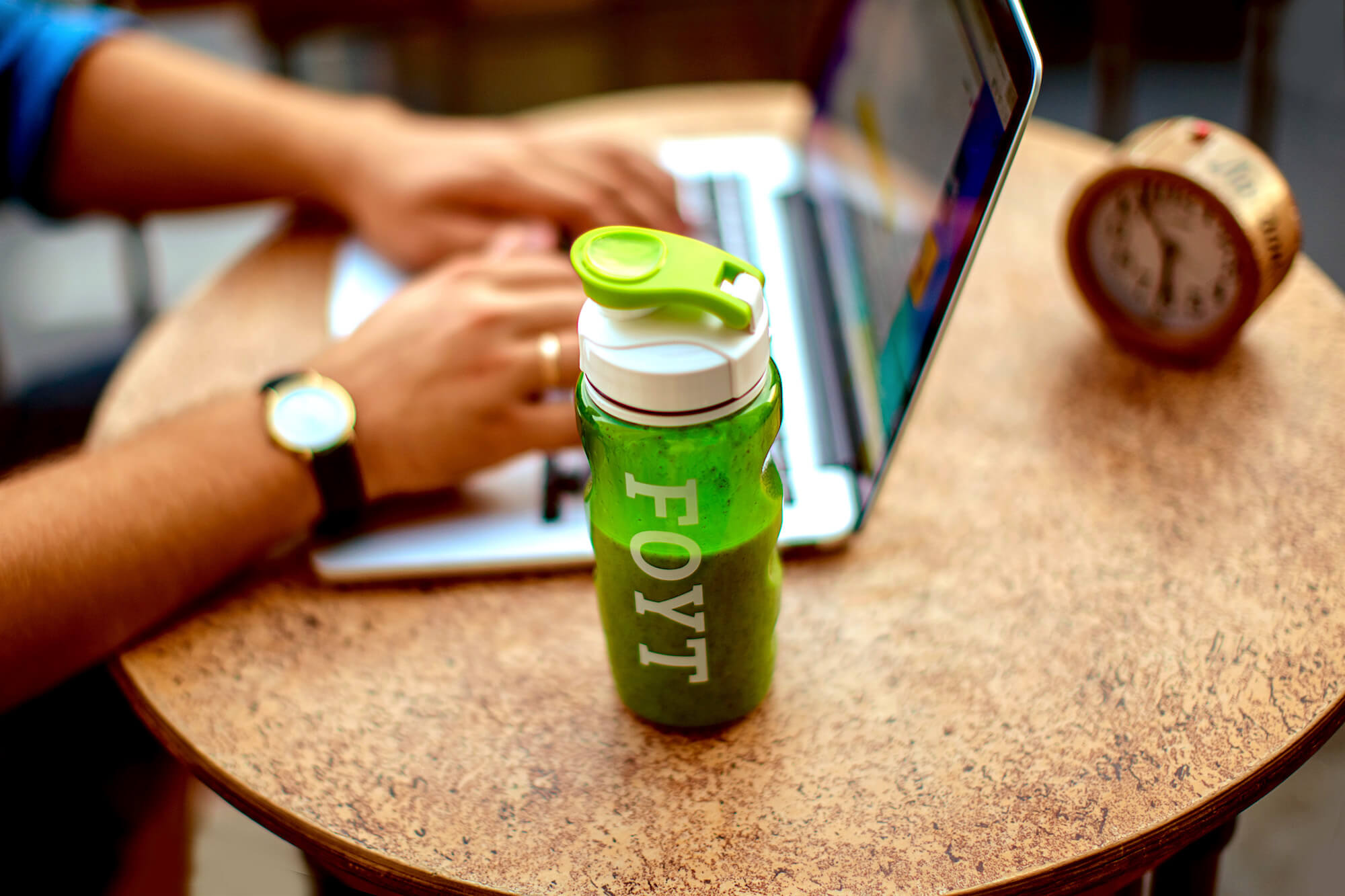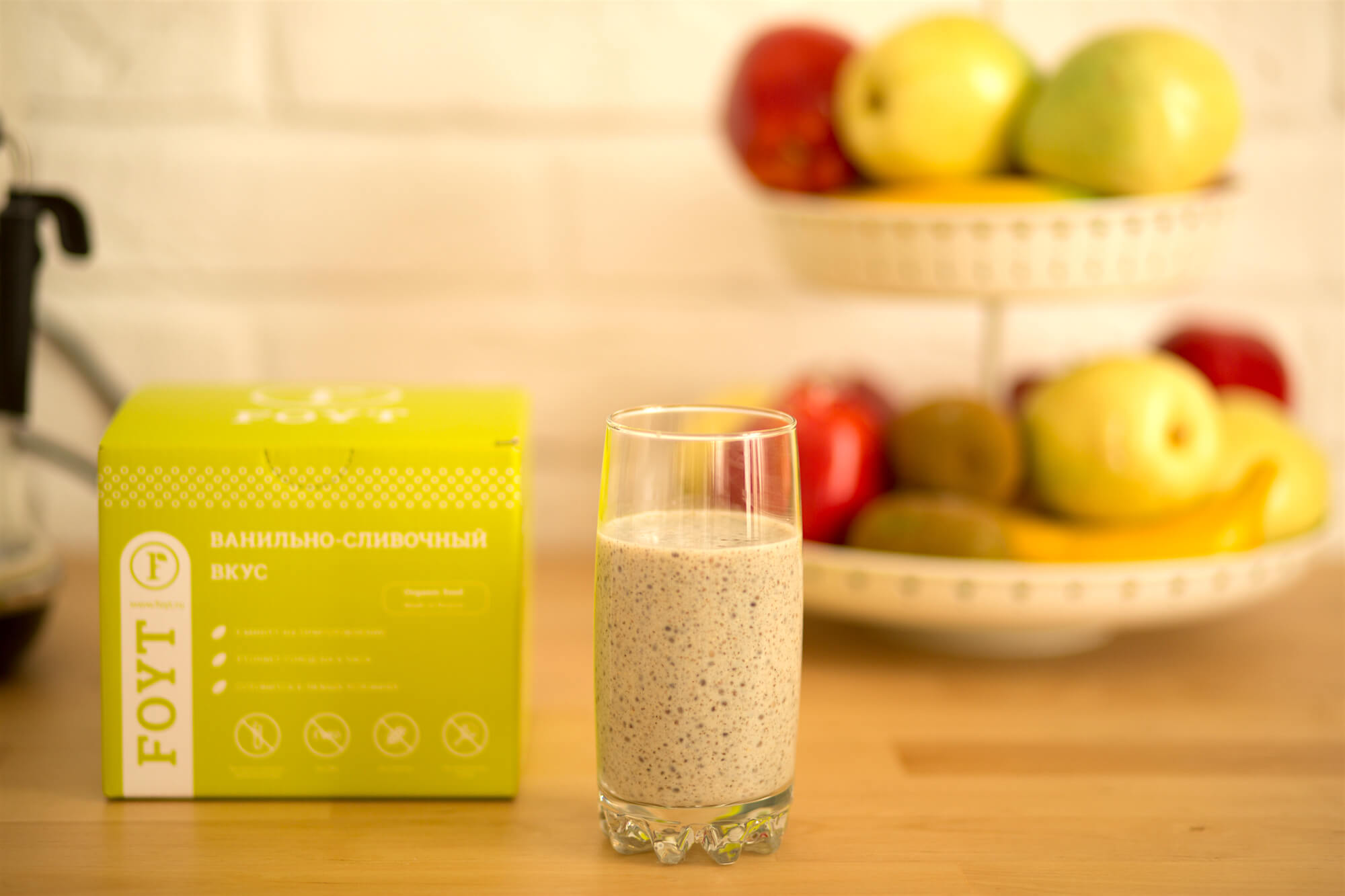A cocktail for a healthy diet - it is made by a startup from the accelerator of ITMO University
More and more manufacturers are appearing on the functional nutrition market. The Foyt project, based on the accelerator of ITMO University Future Technologies , will try to become a full-fledged player in this niche. Photo © Foyt
It can be said that interest in this area has been growing since the early 2000s. Then in Russia there was even a special GOST R 52349-2005 , which defined functional products. Just a few years after its introduction, the “ Food Security Doctrine ” was signed . She prescribes to increase the production of "functional food" - products that can become an alternative to a full lunch or dinner - harmless to health. Foyt

Is an example of this type of product. It is a vitamin drink with fatty acids (omega-3 and omega-6) and fiber. It satisfies hunger for several hours and replenishes strength both during physical and mental stress.
Prior to launching the series, various combinations of ingredients were tested in the laboratory. The Foyt team purchases most of them from foreign manufacturers. The ingredients receive their own specification, which contains information on the amount of macro- and micronutrients. The production process is fully automated, with the exception of packaging. The packaging design is still not finalized, and the company regularly finalizes and experiments it. For example, in February, the new Foyt series came in portioned packets.
Such large companies as Soylent (USA), Ambronite (Finland), Huel (Great Britain) work in the functional food market. However, they are not officially represented in Russia. There are other companies - Prana Food, Energy Diet and Herbalife - but they all differ from Foyt in composition. In the Foyt cocktail, the balance of BJU (proteins, fats, carbohydrates) is achieved through a combination of vegetable and animal proteins. As a result, the consumer receives daily omega-3 and omega-6. Without plant-based raw materials, this is difficult to do.
What Foyt still loses to competitors is in the range. Now you can buy only a vanilla-creamy cocktail. However, this taste is quite neutral, so customers can experiment: add berries, fruits and even coffee to the drink. The company is already developing a whole line of flavors. In the future, banana and chocolate drinks will appear.

Photo © Foyt
The Russian functional nutrition market is estimated at 60 billion rubles. Experts predict that this figure will increase. However, the growth rate depends on several players: large food enterprises and consumers themselves.
They should help solve two important problems. The first is cost reduction for small industries. If large companies enter the market and establish mass production, the cost of ingredients will decrease due to increased demand and wholesale purchases. This will help other market participants.
The second task is the need to “educate” the audience and tell potential consumers about the possibilities of functional nutrition. Many people do not know about such products or do not see suitable opportunities for their use.
Materials for additional reading on our blog:

Is an example of this type of product. It is a vitamin drink with fatty acids (omega-3 and omega-6) and fiber. It satisfies hunger for several hours and replenishes strength both during physical and mental stress.
How to make a cocktail
"Developers" make Foyt from natural ingredients: it does not have stabilizers, preservatives or even sugar. The basis of the drink is whey protein and chia seeds, which contain useful trace elements and vitamins.
Prior to launching the series, various combinations of ingredients were tested in the laboratory. The Foyt team purchases most of them from foreign manufacturers. The ingredients receive their own specification, which contains information on the amount of macro- and micronutrients. The production process is fully automated, with the exception of packaging. The packaging design is still not finalized, and the company regularly finalizes and experiments it. For example, in February, the new Foyt series came in portioned packets.
What are the analogues
Such large companies as Soylent (USA), Ambronite (Finland), Huel (Great Britain) work in the functional food market. However, they are not officially represented in Russia. There are other companies - Prana Food, Energy Diet and Herbalife - but they all differ from Foyt in composition. In the Foyt cocktail, the balance of BJU (proteins, fats, carbohydrates) is achieved through a combination of vegetable and animal proteins. As a result, the consumer receives daily omega-3 and omega-6. Without plant-based raw materials, this is difficult to do.
What Foyt still loses to competitors is in the range. Now you can buy only a vanilla-creamy cocktail. However, this taste is quite neutral, so customers can experiment: add berries, fruits and even coffee to the drink. The company is already developing a whole line of flavors. In the future, banana and chocolate drinks will appear.

Photo © Foyt
Potential in Russia
The Russian functional nutrition market is estimated at 60 billion rubles. Experts predict that this figure will increase. However, the growth rate depends on several players: large food enterprises and consumers themselves.
They should help solve two important problems. The first is cost reduction for small industries. If large companies enter the market and establish mass production, the cost of ingredients will decrease due to increased demand and wholesale purchases. This will help other market participants.
The second task is the need to “educate” the audience and tell potential consumers about the possibilities of functional nutrition. Many people do not know about such products or do not see suitable opportunities for their use.
“If we compare us with European countries, then we lose them for 10-15 years. In the West, the range of functional products is so vast that specialized stores open there, ”says Artem Lepeshkin, founder of the Foyt project. “The situation is gradually changing, but much work remains to be done.”
Materials for additional reading on our blog:
- A smart stethoscope is a startup project from an accelerator at ITMO University . Respiratory diseases are one of the most common reasons for going to the clinic. Laeneco's startup team has developed a smart stethoscope that uses MO algorithms to determine lung disease from audio recordings. Already, its accuracy is 83%. The article talks about the capabilities of the gadget and its prospects for doctors and patients.
- Fablab ITMO University: DIY-coworking for creative people - show what's inside . Fablab is a small workshop where students create various parts and devices for scientific projects. We show the equipment they use: 3D printers, saws and CNC machines. We will also talk about projects implemented in Fablab, for example, about the SMARR robot based on VR and AR.
- How ITMO University works: a tour of our laboratory of cyberphysical systems . We show how the laboratory looks and what students do in its walls. Attention: the article has a lot of photos.
- Mechanized arms and manipulators - what the ITMO University's robotics laboratory does . Another photo tour - this time with robotics. We show the tools: industrial robotic manipulators, robotic gripping devices and a robotic model of a surface ship.
